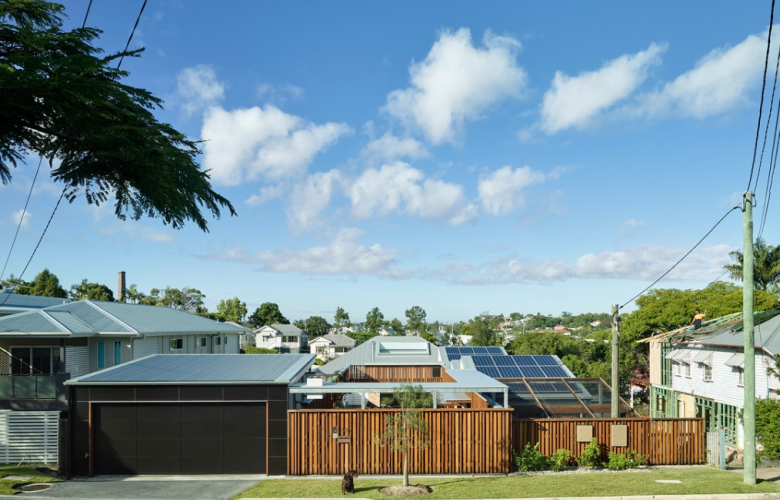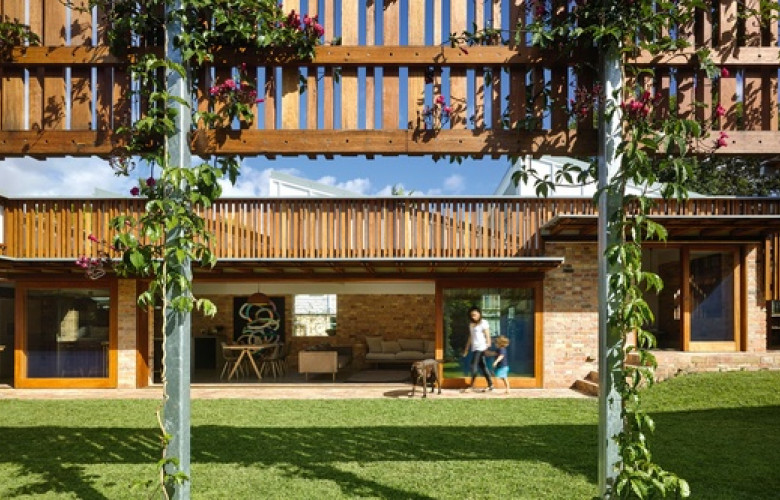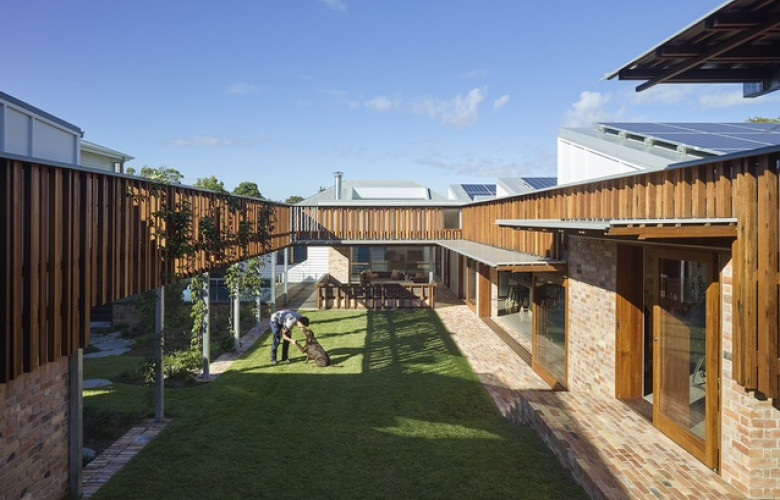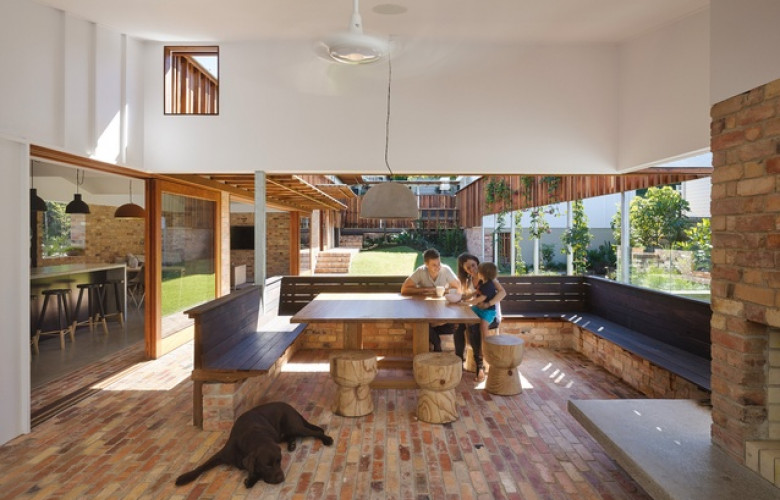Zero impact family home
Contact
Zero impact family home
Project Zero is a revised Queenslander with no impact on the environment.
Project Zero, a house that reuses a typical post world war 2 Queenslander, has set the bar for sustainable living in Queensland.
The house received two awards at this year's Queensland Architecture Awards, including the Harry Marks Award for Sustainability, which is the highest award that is given to a project that demonstrates a comprehensive use of sustainable design principles by the Queensland Chapter of the Australian Institute of Architects.
The premise of Project Zero was literally to have no impact on the environment through passive design, repurposing old building stock and materials, solar technologies, on site water treatment, the use of natural daylighting, native planning and exacting design principles. Owner Leon Bowes, who owns his own building company, desired a four bedroom family house serves as a new model in the housing market of an environmentally friendly residence.
Bowes worked on Project Zero with Apollo Property Group, environmental engineer Rob Lord, landscape designer Steve Clegg and architect Brian Donovan.
"Addressing the issue of sustainability required re-using existing building stock which led to a rather ordinary block with a typical Queensland weatherboard cottage raised above ground on piers," said Donovan, a principal at BVN and Adjunct Professor at the University of Queensland's School of Architecture.
"The house consolidates the research embedded in precedent buildings where central outdoor spaces are used to organise the composition of interior rooms," said Donovan. "This is reflected in the way that the building elements have been pushed to the boundaries to create a major landscape area in the centre of the site."
The main elements of the project that contribute to the "zero" impact building are the re-configuring and relocation of the existing house, on-site water treatment, solar panels, the use of reclaimed building materials, and a carefully thought out landscape design which includes a veggie garden, chook house, compost/worm farm and extensive native planting.









